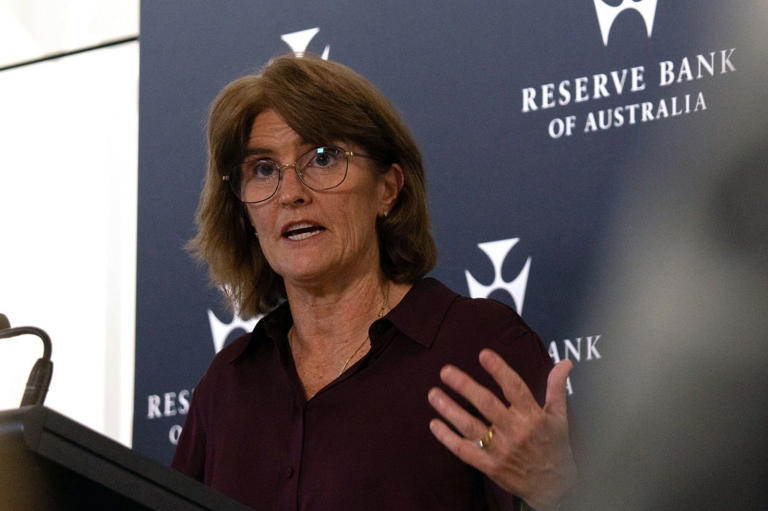Michele Bullock, Governor of the Reserve Bank of Australia, finds herself at the helm during a critical juncture for the country’s economy. Australia, renowned for its commodity-rich exports, is grappling with sluggish economic growth. Recent quarters have seen minimal expansion, with the economy growing by just 0.1% in the first quarter, down from 0.3% in the previous quarter and 0.2% before that. These figures underscore a worrisome trend of stagnation, prompting economists to warn of the possibility of a recession.
Bullock’s tenure as Governor, which began in September the previous year, has coincided with persistent challenges in maintaining economic stability. Her background, steeped in financial stability concerns at the RBA, positions her uniquely to address these issues. Beyond the statistical implications, she is keenly aware of the profound human impact that a recession could bring. For her, it’s not merely about numbers on a spreadsheet; it’s about the potential devastation to households, businesses facing bankruptcy, and the specter of rising unemployment.
RBA’s Response and Policy Considerations
In response to these economic headwinds, the RBA faces critical decisions regarding monetary policy. The official cash rate, a key tool in managing economic conditions, is expected to remain elevated or even rise further. This approach aims to tackle stubborn inflationary pressures that continue to pose risks to the economy. However, the possibility of a recession looms large, complicating the RBA’s policy calculus.
Bullock’s approach to policymaking is informed not only by economic theory but also by practical considerations rooted in her extensive experience. She understands that a recession, defined as two consecutive quarters of economic contraction, could trigger a cascade of economic challenges. These include heightened mortgage defaults, increased financial distress for businesses, and potential job losses across various sectors of the economy.
Societal and Political Ramifications
Beyond the economic realm, Bullock is acutely aware of the political and social implications of a recession in Australia. Historically, Australians have responded harshly to economic downturns, with public sentiment often turning against institutions like the RBA and the federal government. With an election looming within the next 12 months, any economic downturn could amplify political tensions and influence policymaking in unforeseen ways.
The RBA, despite its mandate to maintain economic stability and manage inflation, must navigate these complex dynamics. The challenge lies not only in economic forecasting and policy implementation but also in effectively communicating with the public and stakeholders. Bullock’s leadership during this period will be crucial in shaping how the RBA balances its dual mandate of fostering economic growth and maintaining price stability.
Conclusion
In conclusion, Michele Bullock’s tenure as Governor of the RBA unfolds against a backdrop of economic uncertainty and formidable challenges. Her proactive stance in addressing inflationary pressures while safeguarding against a potential recession reflects a nuanced understanding of economic policy and its broader implications. As Australia navigates through these turbulent times, Bullock’s leadership will play a pivotal role in steering the country’s economy toward stability and resilience.
